Publications
-
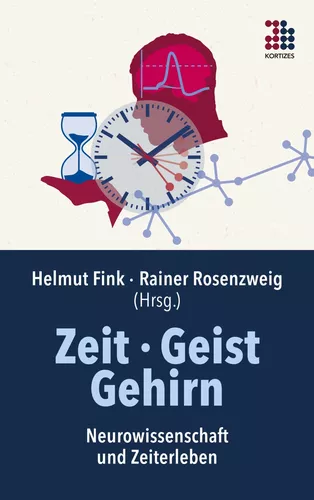 Zeitliche Vielfalt – Erscheinungsformen von Zeit und die Aufgabe der Philosophie
Zeitliche Vielfalt – Erscheinungsformen von Zeit und die Aufgabe der PhilosophieProceedings of the symposium Zeit · Geist · Gehirn. Neurowissenschaft und Zeiterleben 2021.
-
 »Everything a Learner Needs« – Constructions Of Linguistic and Social Marginality/Centrality In Discourses about (German) Language Learning and Multilingualism
»Everything a Learner Needs« – Constructions Of Linguistic and Social Marginality/Centrality In Discourses about (German) Language Learning and Multilingualism
-
 Mimicry of Marginality. On Masking Hegemonic Positions Through Discourse
Mimicry of Marginality. On Masking Hegemonic Positions Through Discourse
-
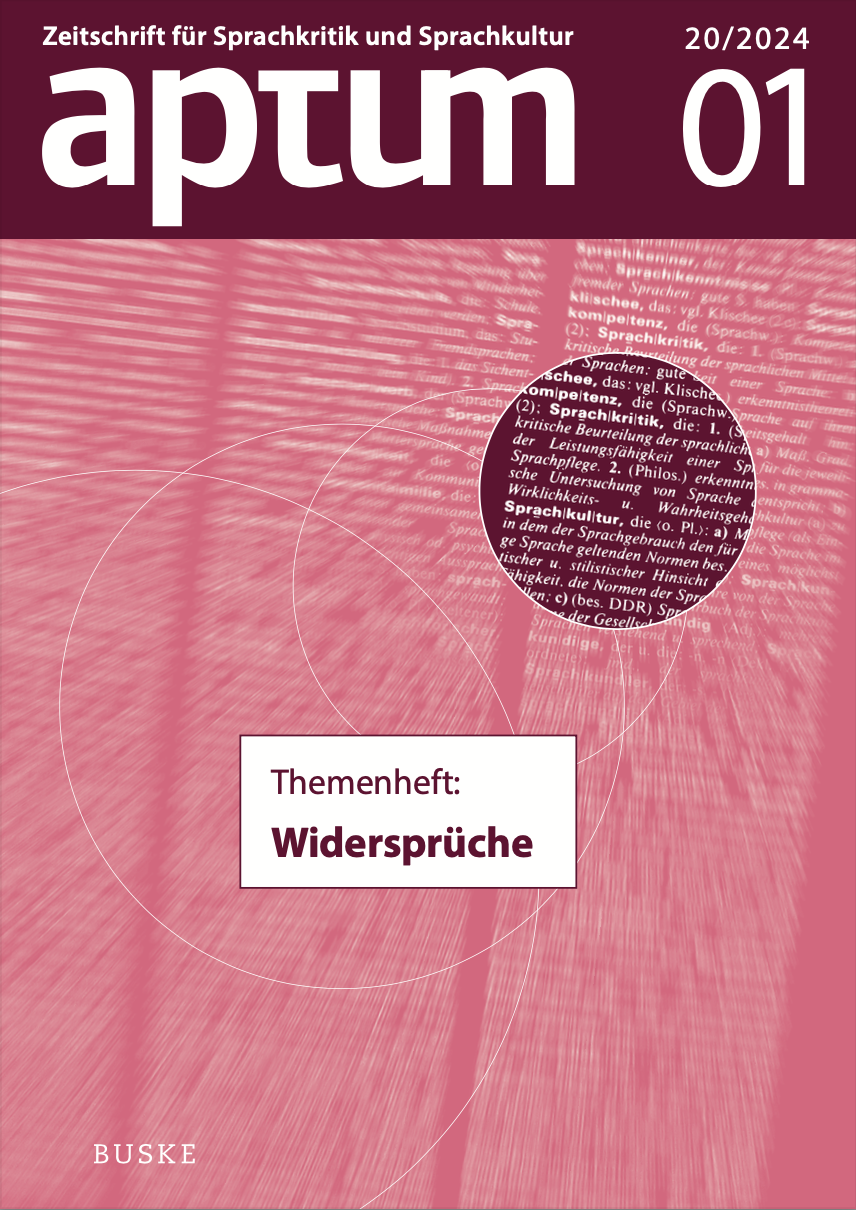 Diskurs ist Widerspruch
Diskurs ist WiderspruchIntroduction to the special issue Widersprüche.
-
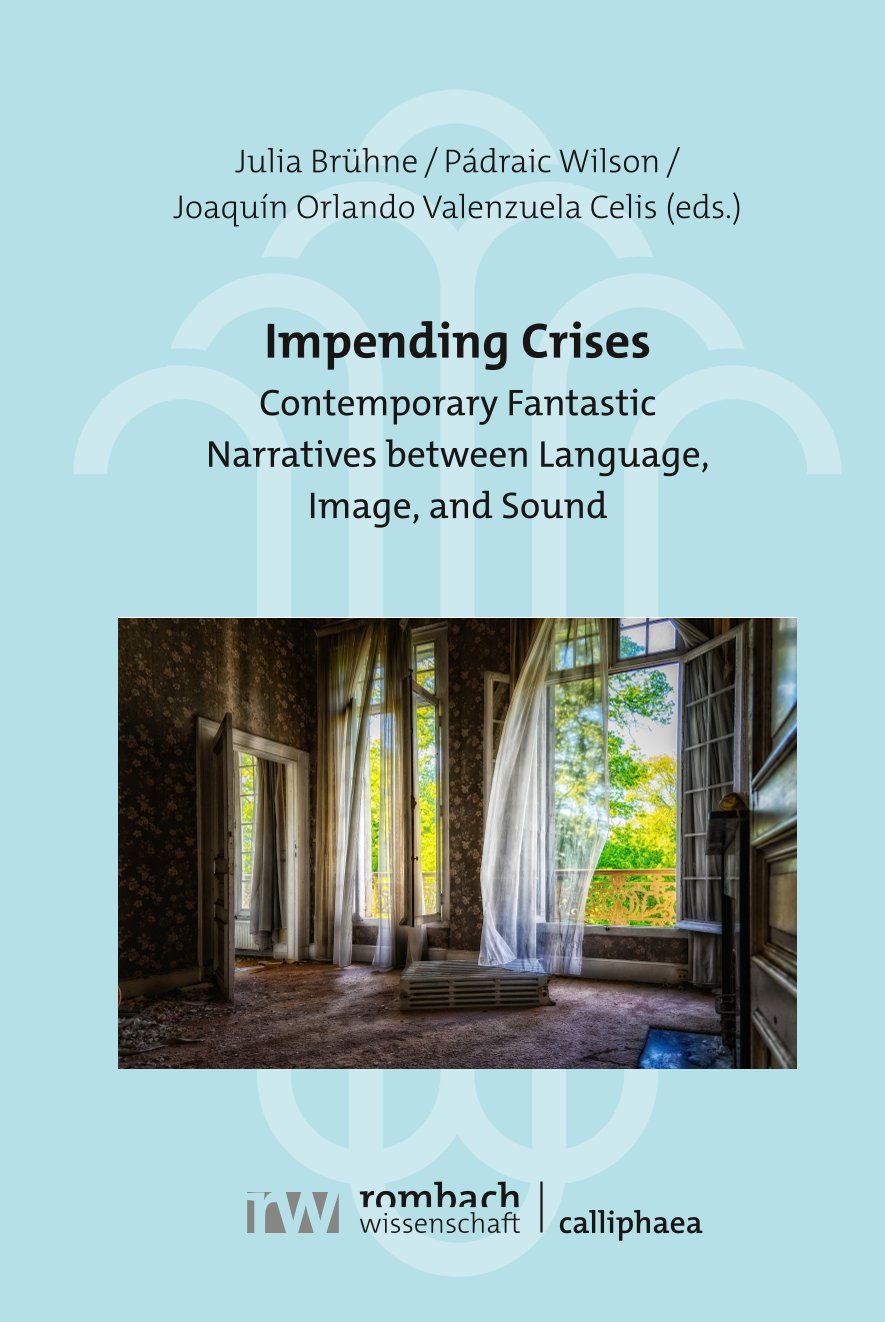 Between Fantasy and Horror: La nuée (2020) by Just Philippot as a Film about the Ecological Crisis of the Anthropocene
Between Fantasy and Horror: La nuée (2020) by Just Philippot as a Film about the Ecological Crisis of the AnthropoceneThis contribution deals with the contradictions of nature and agricultural economy in the contemporary moment of crisis in the Anthropocene. It is based on an analysis of the fantastic French film La nuée (The Swarm) by Just Philippot who reflects by this film also on the turning points from the preception of reality to obsession and from the uninjured body to the damaged body, or even from live to death resepctiveley from live instinct to death drive.
-
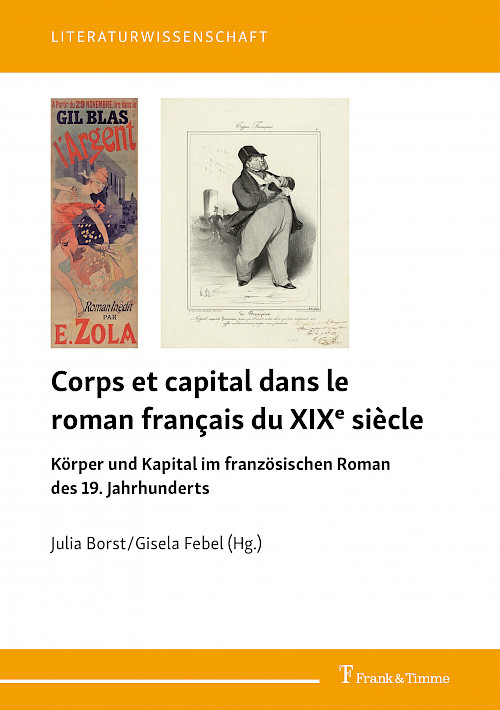 Corps et capital dans le roman français du XIXe siècle. Körper und Kapital im französischen Roman des 19. Jahrhunderts
Corps et capital dans le roman français du XIXe siècle. Körper und Kapital im französischen Roman des 19. JahrhundertsThe living body and the capitalist thinking of the modern economy seem to be irreconcilable objects. Nevertheless, their history and perception have been inextricably linked, at least since the times of industrialization and capitalization in the 19th century. Our volume follows this entangled history and the various contradictions it develops.
Since Pierre Bourdieu, we known that the body forms an incorporated cultural and social capital. It is a commodity and means of production, a sign of belonging to a social class, a place where sex, gender and power relations are negotiated or a pretext for social exclusions and racism. The body is the object of punishments, sanctions and social control, a support for affects, obsessions and illnesses as well as a site of rebellion and resistance. The 19th century novels analyzed in the contributions to this volume tell all this. From the perspective of current body studies, we propose a new reading of the great stories from Balzac to Zola, via Mirbeau, Maupassant, Louise Michel, Georges Sand, Rachilde, Eugène Sue and Huysmans to demonstrate, through their texts, how the images of the body and the policies of capital are entangled and, thus, form a central part of the imagination and the memory of 19th century French (and Northern/Western) society.
Contributions in French and German.
-
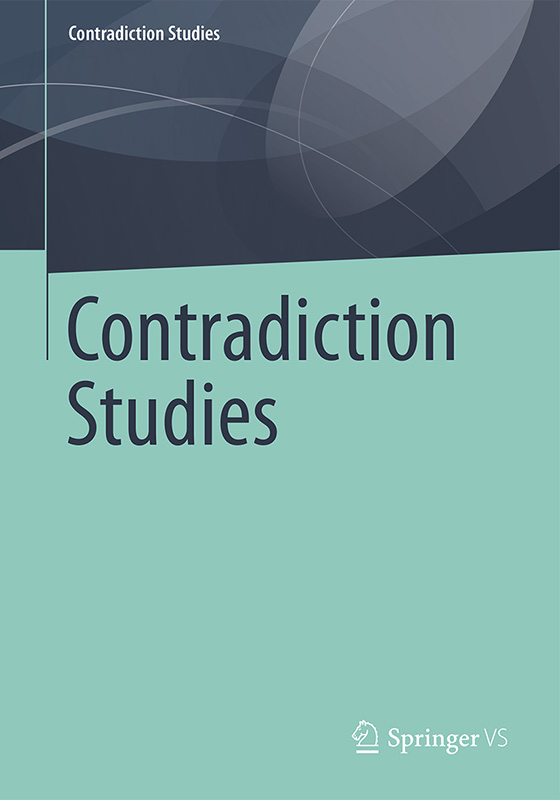 Contradiction Studies
Contradiction StudiesPutting contradiction center stage, this series aims at challenging simplistic conceptualizations of the contradictive. The series editors agree that contradictions are not necessarily about being resolved but that they rather provide starting points for polyphonic conversations.
-
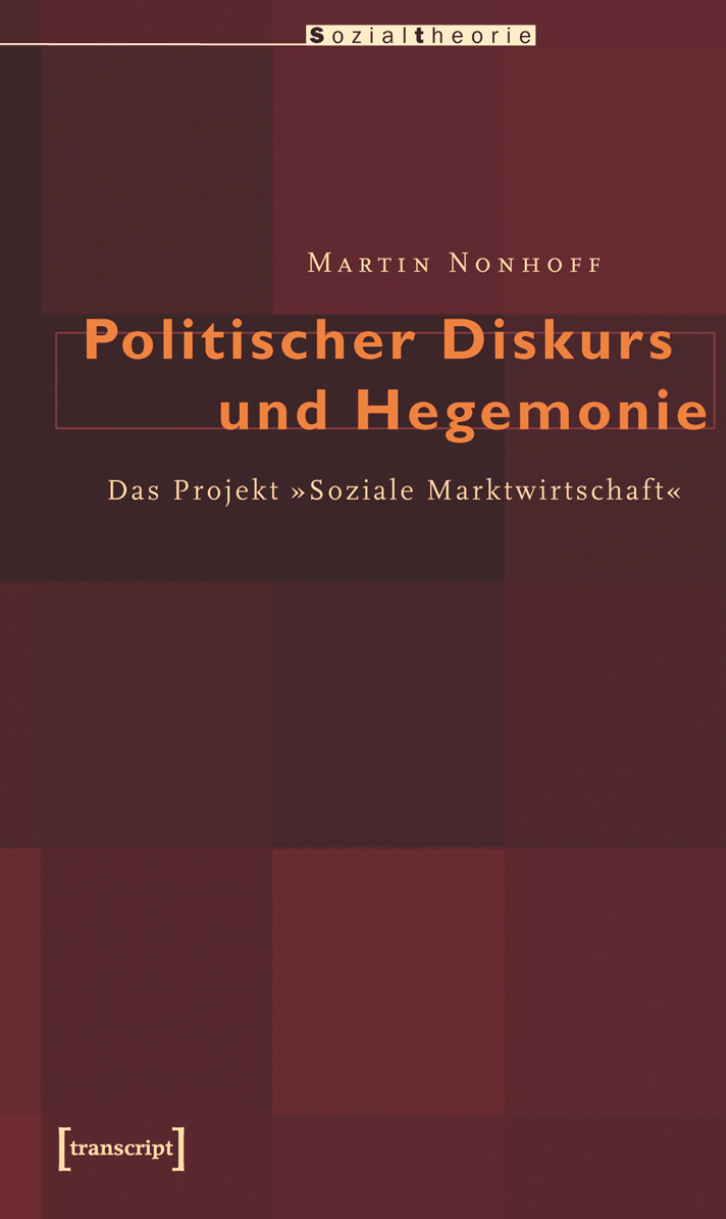 Politischer Diskurs und Hegemonie. Das Projekt »Soziale Marktwirtschaft«
Politischer Diskurs und Hegemonie. Das Projekt »Soziale Marktwirtschaft«How do dominant political language and thought patterns emerge and how are they related to social power relations? This volume aims to get to the bottom of these questions about the functioning of discursive hegemonies by linking political science and discourse studies. The political-discursive characteristics and strategies of successful hegemonies are reconstructed on the basis of an examination of the hegemonic project “social market economy”. In addition, the exemplary analysis of the West German economic policy discourse of the post-war years illustrates how political science can benefit from discourse studies research.
-
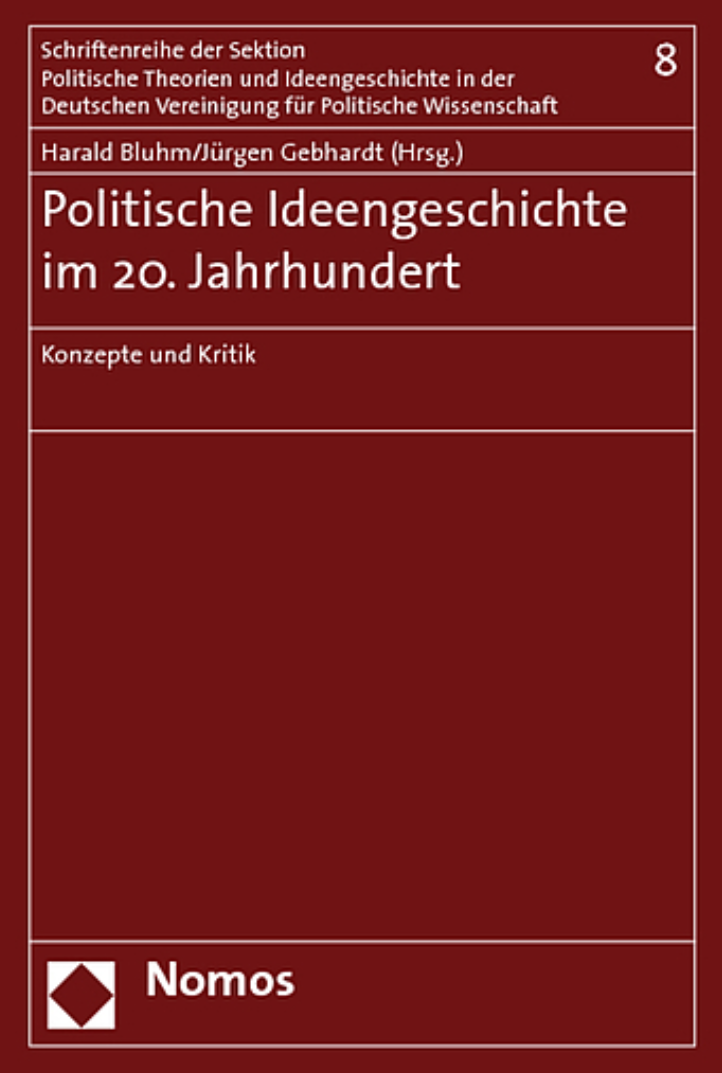 Politische Ideengeschichte und politische Hegemonie. Anmerkungen zum ‚Battle of the Books‘ an den amerikanischen Colleges
Politische Ideengeschichte und politische Hegemonie. Anmerkungen zum ‚Battle of the Books‘ an den amerikanischen Colleges
-
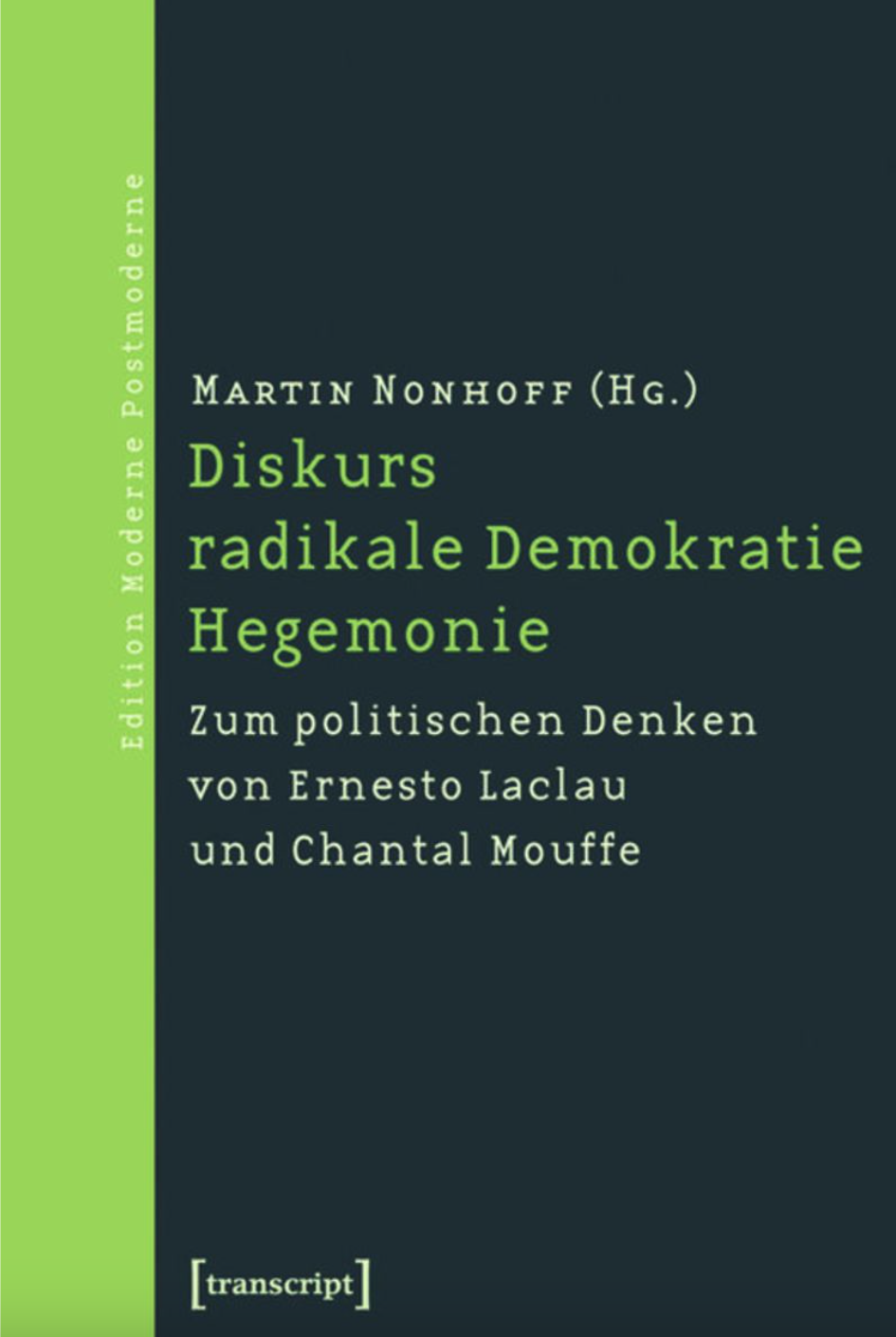 Diskurs – radikale Demokratie – Hegemonie.
Diskurs – radikale Demokratie – Hegemonie.Few political thinkers have influenced the international political and social science theory discourse of recent years as much as Chantal Mouffe and Ernesto Laclau – across paradigm boundaries. Both combine neo-Gramscian, (post-)structuralist and psychoanalytical theoretical elements and thus enable an explanation of political-discursive events, in particular the formation of hegemonies, on the one hand, and a normative theory of agonal democracy on the other.
The contributions in this volume provide an overview of Laclau’s and Mouffe’s key figures of thought, critically examine them and point out methodological and empirical connections.
This volume contains original texts by Ernesto Laclau and Chantal Mouffe, among others.
-
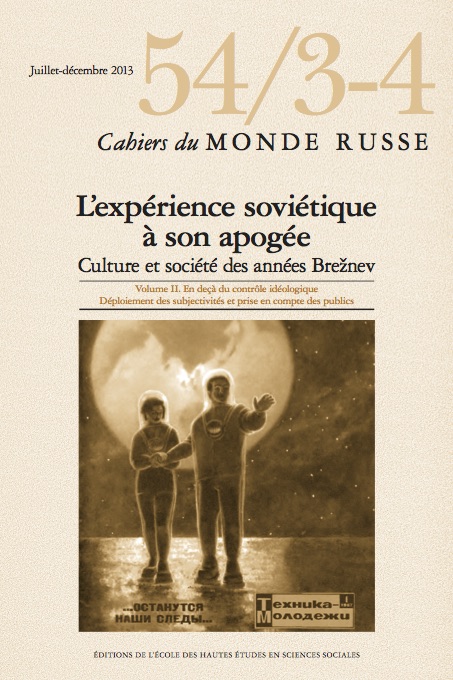 Les frontières du dicible. Du dialogue au silence: Les relations d’Andrej Saharov avec Hrušcev et Brežnev.
Les frontières du dicible. Du dialogue au silence: Les relations d’Andrej Saharov avec Hrušcev et Brežnev.This article describes the historical context that was decisive in Saharov’s commitment to warning party leaders of the dangers of the H-bomb and calling on them to respect human rights. He also attempts to explore the different ways in which Hruščev and Brežnev approached Saharov’s criticisms. Not only does he examine the three stages of the KGB model – educate, warn and only finally arrest renegades – he also sheds light on Andropov’s repeated appeals to Brežnev to speak with Saharov. Although Saharov, too, was keen to talk to Brežnev, the meeting between the two men never took place. In the end, it was against the backdrop of the Cold War that the Politbjuro decided on the best time to get rid of Saharov, doing as little damage as possible to the prestige of the Soviet Union, and thus re-establishing the limits of the dictable.
-
 „Sascha, ich würde Dir gern glauben, aber versteh auch Du mich …“. Breschnew, Dubček und die Frage von Kadern und Vertrauen im Konflikt um den Prager Frühling 1968
„Sascha, ich würde Dir gern glauben, aber versteh auch Du mich …“. Breschnew, Dubček und die Frage von Kadern und Vertrauen im Konflikt um den Prager Frühling 1968This article focuses on the question, which kind of diplomacy we have to deal with within the Warsaw pact states. Taking the invasion in Czechoslovakia in 1968 as an example, three theses are discussed: (1) Brezhnev transferred his inner-party concept of „trust in cadres“ and his „scenario of power“ based on trust to foreign politics and treated Dubček as a client whom he addressed in a patrimonial and familiar way. (2) He lost faith in Dubček when the latter established a new democratic discourse denying the central power of the party. (3) The diplomatic language within the Warsaw pact states referred more to socialist common values and party discipline than to the language and setting of international meetings with third party states.
-
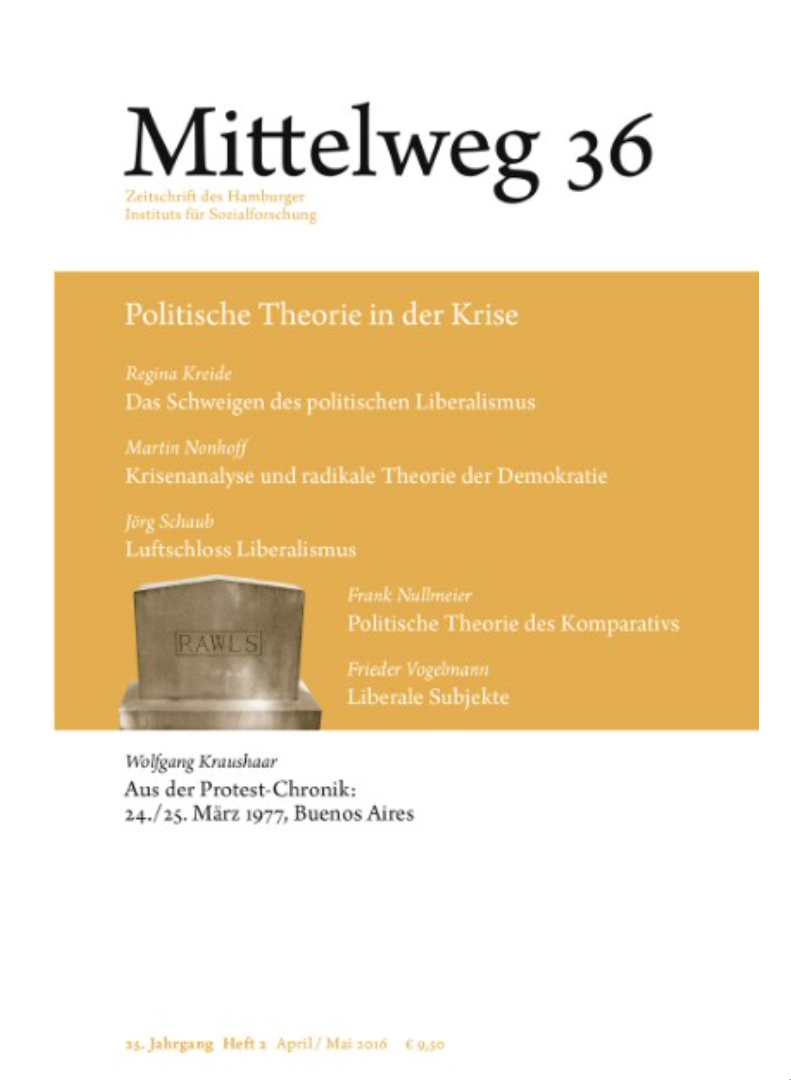 Politische Theorie in der Krise
Politische Theorie in der KriseMartin Nonhoff/Frieder Vogelmann: Editorial (Seite 3); Regina Kreide: Das Schweigen des politischen Liberalismus (Seite 5); Martin Nonhoff: Krisenanalyse und radikale Theorie der Demokratie (Seite 21); Jörg Schaub: Luftschloss Liberalismus. Warum das Denken in Krisenzeiten keinen Halt findet (Seite 38); Frank Nullmeier: Politische Theorie des Komparativs. Soziale Vergleiche und gerechte Gesellschaft (Seite 56); Frieder Vogelmann: Liberale Subjekte Eine affirmative Streitschrift (Seite 74); Wolfgang Kraushaar: Aus der Protest-Chronik: 24./25. März 1977, Buenos Aires (Seite 91)
-
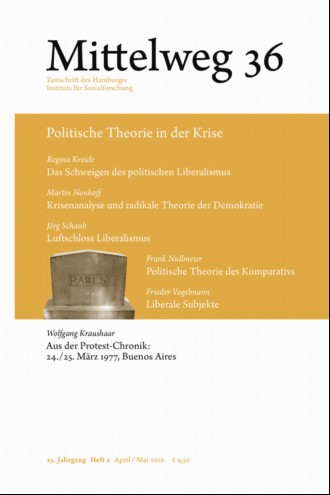 Krisenanalyse und radikale Theorie der Demokratie.
Krisenanalyse und radikale Theorie der Demokratie.
-
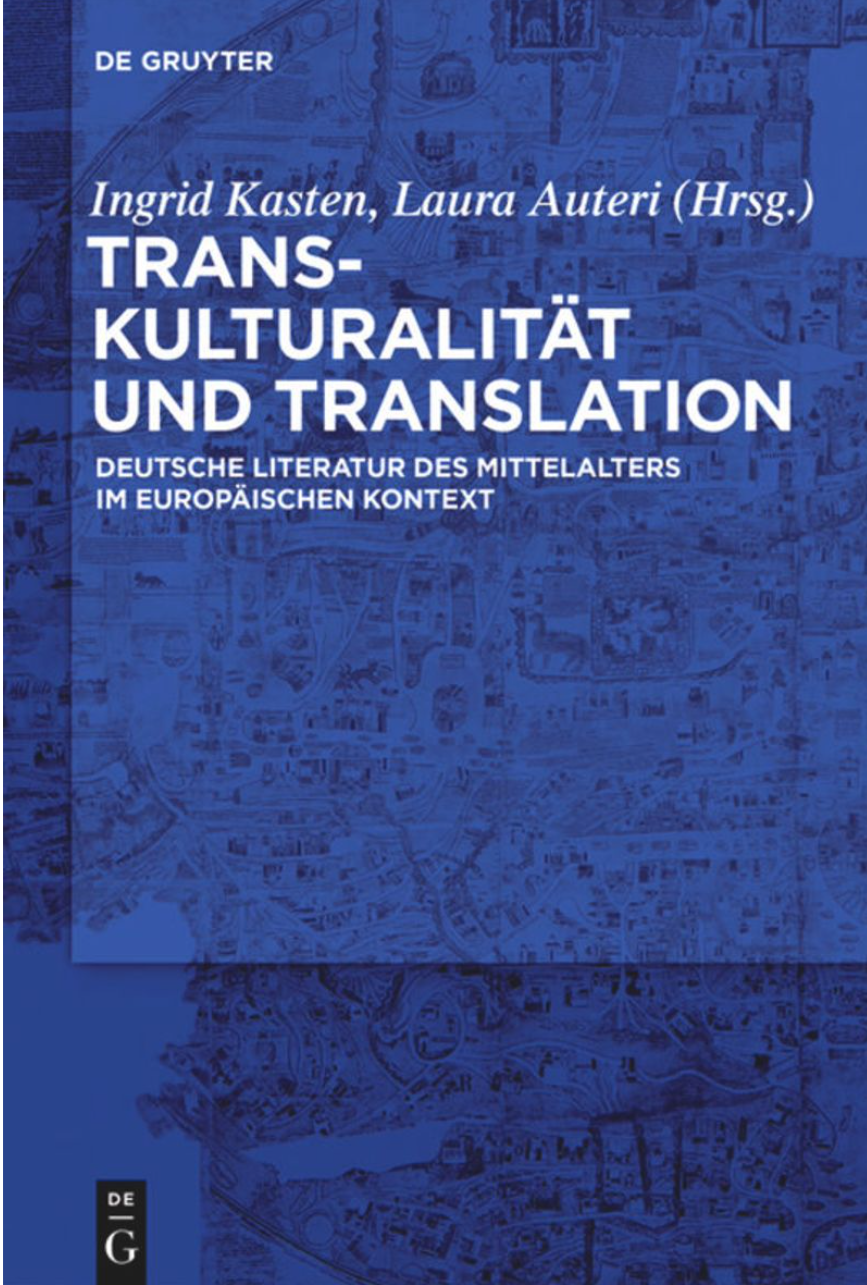 Erzählen in transkultureller Perspektive. Zur Poetologie der Widersprüche in der europäischen Heldendichtung
Erzählen in transkultureller Perspektive. Zur Poetologie der Widersprüche in der europäischen Heldendichtung
-
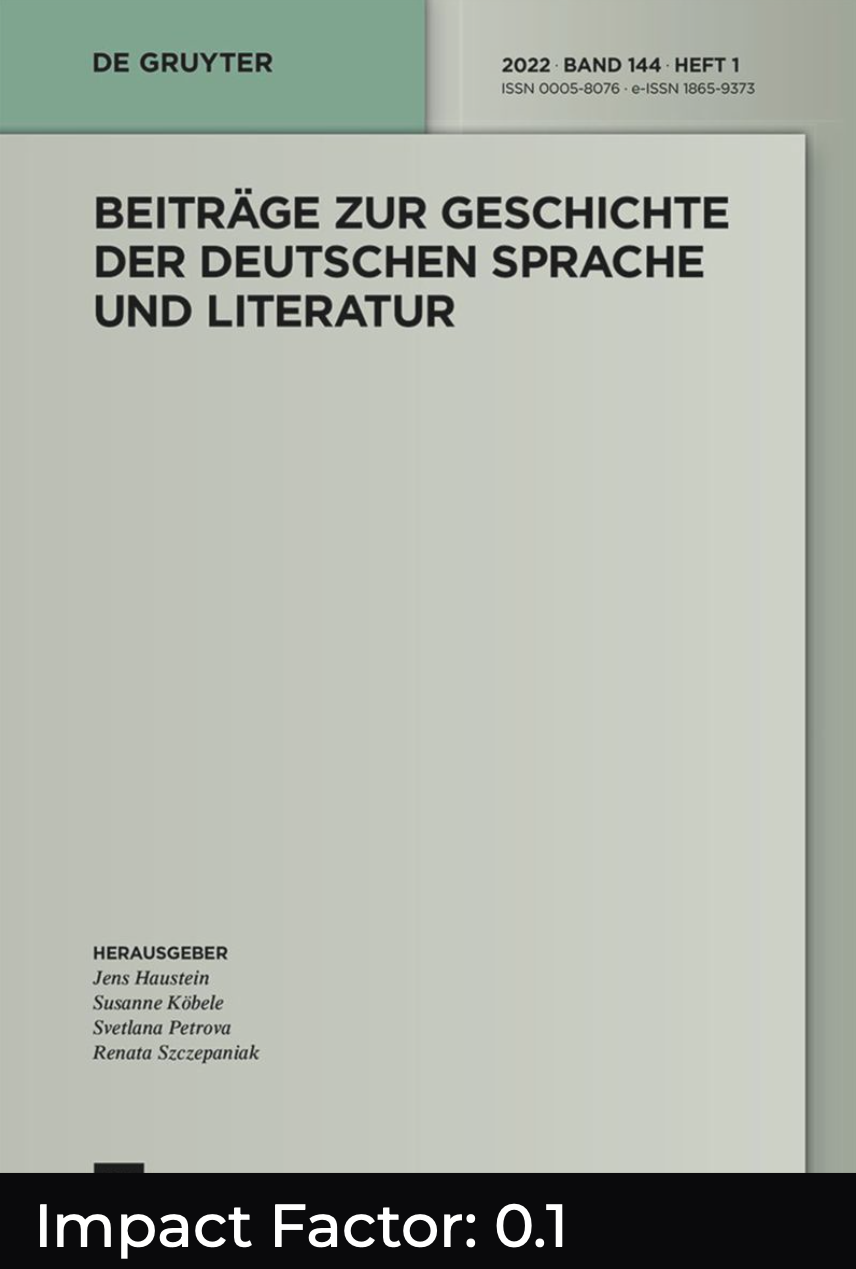 Widerspruch als Erzählprinzip in der Vormoderne? Eine Projektskizze
Widerspruch als Erzählprinzip in der Vormoderne? Eine ProjektskizzeIn premodern narratives contradictions are omnipresent – conflicting concepts, logical inconsistencies, acts of objection. In a narratological perspective ›contradiction‹ – conflicts of incompatible knowledges and narrative patterns; inconsistencies in or between speech (by narrator or characters) and action; contradictory or inconsistent information and motivation – is apt to subvert, complicate, or enrich the textual production of meaning. The project ›Contradiction as a Narrative Principle in Premodern Narrative‹ (University of Bremen) explores different types of contradictions in medieval epic and romance.
-
 Leonid Breschnew. Staatsmann und Schauspieler im Schatten Stalins. Eine Biographie
Leonid Breschnew. Staatsmann und Schauspieler im Schatten Stalins. Eine BiographieLeonid Brezhnev was Chairman of the CPSU from 1964 to 1982 and shaped the development of the Soviet Union for almost two decades. Contrary to what had long been claimed in the West, Brezhnev was not a hardliner or restalinizer, but had himself suffered under Stalin and seen so much suffering that he declared prosperity for all to be the general line of the party. The horrors he had experienced in the Second World War led him to seek a balance with the West. Brezhnev mimicked the Western statesman and was accepted by his partners as one of their own. But when Georges Pompidou died in 1974 and Willy Brandt and Richard Nixon resigned, Brezhnev found himself faced with the ruins of his policy of détente. For, as no one in the West suspected, there was no change of policy in the Kremlin. Stress and insomnia led Brezhnev into a pill addiction that further ruined his peace efforts: the invasion of Afghanistan by Soviet troops in 1979 was decided by a Politburo troika without him.
A man in his time: Based on numerous previously inaccessible sources, Eastern European historian Susanne Schattenberg presents the first academic biography of Leonid Brezhnev on the 35th anniversary of his death in November 2017.
-
 Discourse Analysis as Critique
Discourse Analysis as CritiqueThis paper intervenes in the discussion about the relationship between discourse analysis and critique. It argues that this relationship can be understood either as an external or as an integrated relationship. In an external relationship, there is first social criticism that is then braced by discourse analysis, that is, the latter aims at giving empirical credence to the critique. However, such an external relationship cannot give us any insight concerning the critical potential that is specific to discourse analysis, precisely because in this case critique exists before and independent of discourse analysis. If, however, critique emanates from discourse analysis itself, we would speak of an integrated relationship and would no longer speak of discourse analysis and critique, but of discourse analysis as critique. It is argued that such an integrated relationship becomes visible once we think of discourse analysis as being itself a discursive formation and ask what unsettling effects this formation has on research objects, on subject formations and on the academic production context in which they are conducted.
-
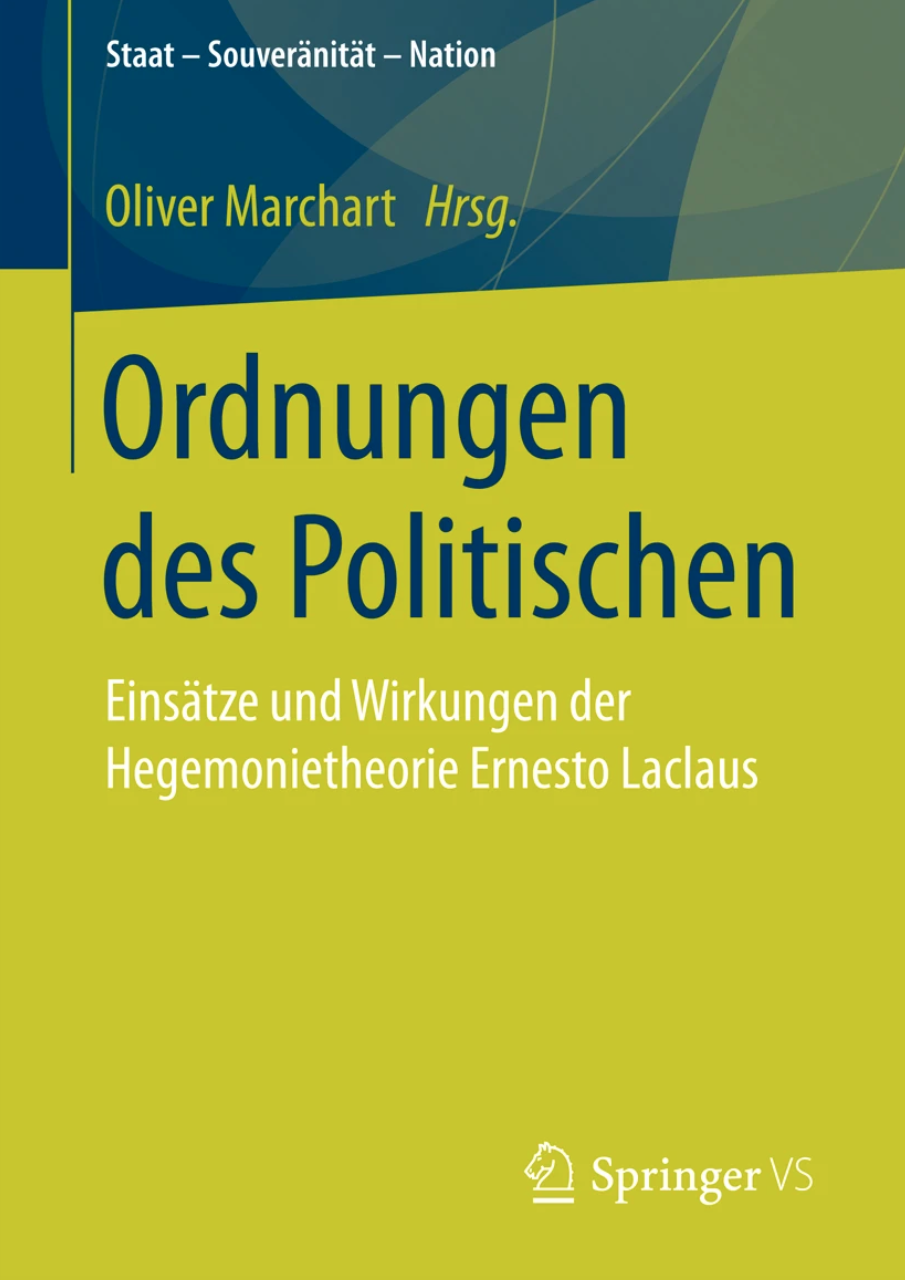 Antagonismus und Antagonismen. Hegemonietheoretische Aufklärung
Antagonismus und Antagonismen. Hegemonietheoretische Aufklärung
-
 Antagonisten im höfischen Roman? Eine Skizze
Antagonisten im höfischen Roman? Eine SkizzeThis contribution (re-)examines the description and multiple functions of selected antagonists in courtly romance around 1200. Excepting romance of antiquity, one rarely encounters equal opponents who represent a contrary system of values and continue to take consequent action against the hero until the end. The texts are centered on their protagonists, lacking an equal narrative counterpart. Hence, the applicability of the concept ‘antagonist’ might be called into question for Arthurian, grail, and Tristan romance.